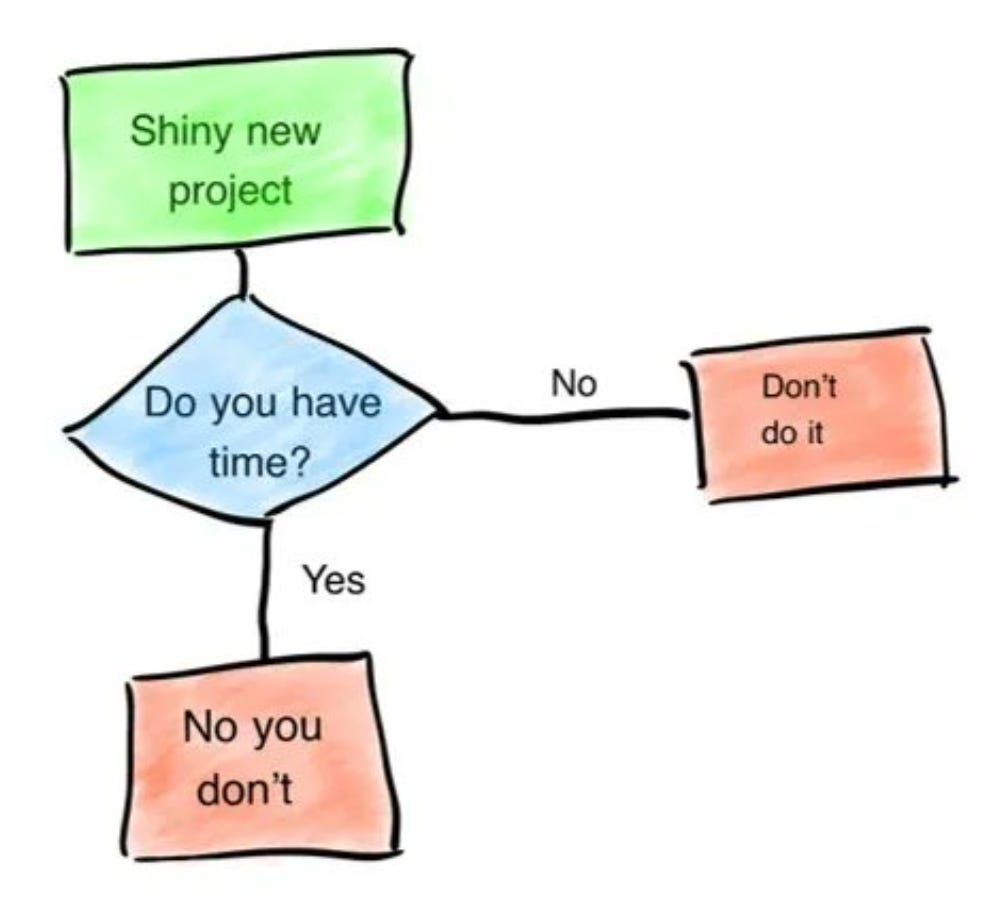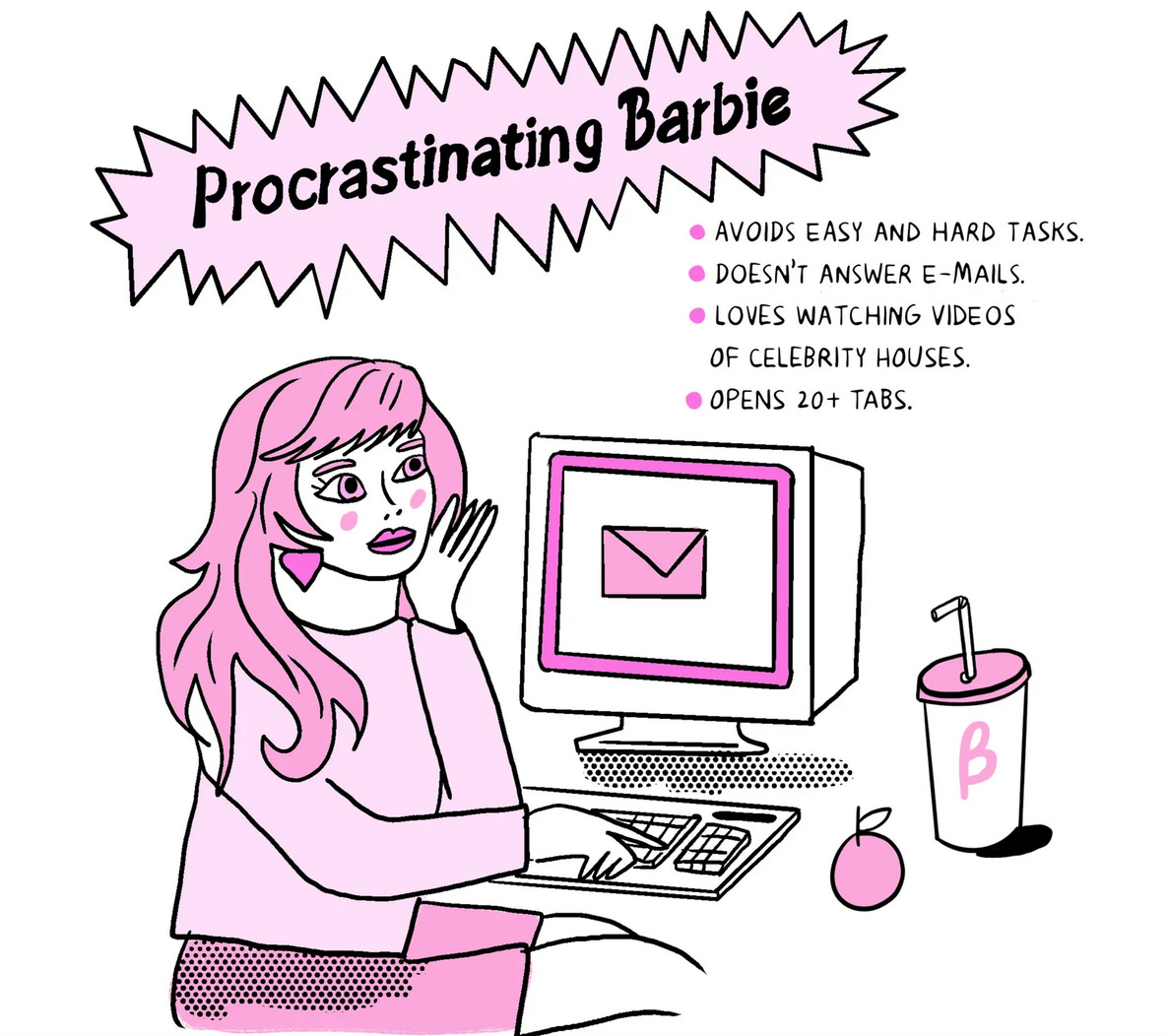How to distract a lizard
Why distraction is normal and how our brains protect us from hard things. Why I am procrastinating plus lots of links on distraction which might be distracting (sorry).
Earlier this summer when I finished writing my novel, I took the age-old advice of putting it in a drawer and ignoring it for as long as possible. It was a great tip to follow.
Printing it off was a physical representation of my efforts - a milestone achieved - and there was a sense of ritual in hiding it away out of sight. After a few weeks I was itching to return to the draft – it was an unbearable longing, like a being away from a lover.
Ready to be reunited, I fished it out of its metaphorical drawer, sat down, and read it beginning to end. I was ready to embark the rewrite. I was pumped with motivation and had a clear plan in place.
I spent the next week procrastinating with gusto.
Chores that had languished on my to-do list were accomplished. My house has never been cleaner; I even scrubbed the skirting boards, something I’ve never had reason to do in all the years I’ve lived here. Some of the tasks I embarked on were difficult, complex, unpleasant to do, yet they all seemed far easier than writing.
Blame the lizard
Procrastination is normal. All writers get distracted from their writing – the experienced ones like George R.R. Martin whose epic distraction we write about in Written, and those just starting out, like me - a rookie novelist writing her first work of fiction.
It’s an innate response when we face something that is scary, difficult or complicated. This survival instinct has been honed over thousands of years of evolution. Our brains want to keep us safe, protect us, so they seek out other tasks that are easier, more fun or at least less painful to do.
All humans get distracted; in fact all animals do. It all comes down to the so-called lizard brain.1 The limbic system of our brain is considered to be very primitive, hence the lizard nickname. It’s responsible for basic functions, because that’s all lizards can do, things like the classic fight or flight mode and other alliterative responses including feeding, fear, freezing up, and fornication. 2
Our lizard wants to keep us safe and secure, that means when we tackle something hard (like writing) it will seek out easier and more pleasurable tasks. While I am hugely grateful that my brain has my best interests at heart it can be deeply frustrating when I fail to make progress on the things I want to do the most.
How do you stop a lizard procrastinating?
While the tasks I was procrastinating on were themselves not always pleasant and often quite difficult, they felt like a safer option than tackling my rewrites. Ticking them off my to-do list gave me a hit of dopamine. And have you ever admired freshly scrubbed skirting boards? It’s quite a high.
I needed to put down my rubber gloves and set aside my newfound fantasises of setting up a cleaning hacks TikTok. I needed to distract my lizard from its distraction.
In the end, it was a piece of advice I’ve given to writers many times and need reminding of often. Scale back. Don’t focus on ‘doing the rewrite’ but find a first step, something small, easy.
Read: How to start writing
Thinking of my lizard brain and its love of f-word alliteration I decided to do something fun. I got out my multi-coloured post it notes and a set of acid bright post-it notes and spread my draft out on the floor and joyfully marked it up.
I started the rewrite and have thankfully neglected obscure household chores. They can wait until the second draft needs some work.
Keep writing, Bec
Links on distraction aka distracting links
I’ve gathered rather a lot of links on distraction, which are mostly helpful, however a few of them offer a glimpse into my personal procrastination tendencies. Check out some great advice on distraction and some interesting but not so helpful distracting links.
Do you have time for that shiny new project? A flow diagram to help you decide, via Hugh Kearns.
How to stop procrastinating science-backed advice from Psyche
Writer’s block is trying to tell you something, according to Austin Kleon
The Procrastinator’s Paradox: What if delaying your work is part of the process?
Don’t sweat that deadline; time-wasting can be time well spent.
The noble art of procrastination
Paying Attention to Your Attention Span from David Epstein
Morgan Housel on Paying Attention
After last week’s post on The Isolator - be careful what solutions you come up with - the risks of noise cancelling headphones
So good! Katherine May on how to keep a writer’s notebook
Does your writing need a boost and a bit of accountability next month? Jami Attenberg is doing a Mini 1000 - sign up!
One for the planners (or those of us who invest hope & dreams in plans). Cal Newport is promoting his new planner and sending lots of helpful links about how he time blocks, check out his more detailed look at time blocking, or this article on planning every minute of your working day, the companion website for the book, this video, or this podcast episode.
The role model we need - Procrastinating Barbie from The New Yorker
Paula Cocozza on how to be creative when you have no time - guest column on Emma Gannon’s The Hyphen.
The ever insightful Robin Sloan talking about Twitter and writing and whether Twitter was ever helpful for writers on the LitHub podcast Fiction / Non-Fiction
Writer’s houses - just dreaming of living in Charles and Mary Lamb’s writing retreat
We’re married writers, well that’s my excuse for reading about the weddings of famous writers
‘Tsundoku’ is the Japanese term for the act of buying new books and letting them pile up without reading them. Penguin’s Happy Readings mentioned the new exhibition called Tsundoku: Collecting Books, currently on view at the showroom of the publisher Atelier Éditions in Los Angeles.
Talking of Tsundoku here’s The Washington Post on How to Move Books and Molly Templeton on the Ritual of rearranging books
Right that’s enough distraction. Next week we’re all about keeping going with September’s theme of resilience. See you then!
Ask Us Anything - replay now on YouTube
From categories of distraction, how to overcome timid writing, writing when you are ill, how to keep going when things change and it feels like you are starting from scratch.
Also, answers on apps, laziness, is binge writing sustainable and some practical tips to manage distraction, including Obstacle Thinking and keeping a distraction diary. Click the image to watch.
We don’t actually have a brain in common with lizards, and some researchers are trying to convince us to drop the phrase completely, but it is helpful story to explain why we avoid certain things that scare us.
Your Lizard Brain: The limbic system and brain functioning by Joseph Troncale M.D.









I really love your regular tips, Bec and Chris!
On the "ritual" of "moving away" from my draft, I send out to friends for comment. He or she may not have time to get back to me, but my draft crossing the internet is helps in "distancing" me from the draft and later read with a different pair of lenses. Sometimes, changing fonts and medium (word to power point and vice versa) also helps.
Scheduling kitchen clean-ups in-between writing is, indeed, a great hack. Organizing cupboards and drawers helps the brain organized my thoughts.
Thanks, Bec and Chris!
Great advice.
I always tell myself “do it when you can, not when you have to.”